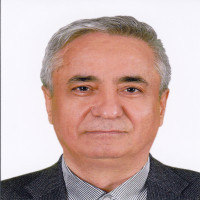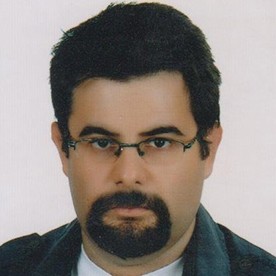Araştırma Makalesi
Amaç ve Kapsam
The journal targets to present to the international community important results of work in the fields of engineering technologies such as imagining, researching, planning, creating, testing, improving, implementing, using and asking. The journal also aims to help engineers, researchers, scientists, manufacturers, universities, institutions, industries, world agencies, societies, etc. to keep up with new developments in theory and applications and to provide alternative solutions to current multi engineering issues.
The International Journal of Engineering Technologies (IJET) seeks to stimulate and publicizes knowledge of the various topics of engineering technologies. The IJET is a new peer review, open source and free of charge journal, which accepts all types of papers about engineering technologies.
The International Journal of Engineering Technologies is a quarterly published journal operating an online submission and peer review system. It allows authors to submit articles online and track their progress via its web interface. The journal aims for a publication speed of 60 days from submission until final publication.
The coverage of IJET includes the following engineering areas, but not limited to:
Chemical engineering
- Biomolecular engineering
- Materials engineering
- Molecular engineering
- Process engineering
Civil engineering
- Environmental engineering
- Geotechnical engineering
- Structural engineering
- Transportation engineering
- Water resources engineering
Electrical engineering
- Computer engineering
- Electronic engineering
- Optical engineering
- Power engineering
Mechanical engineering
- Acoustical engineering
- Manufacturing engineering
- Thermal engineering
- Vehicle engineering
- Aerospace engineering
- Agricultural engineering
- Applied engineering
- Biological engineering
- Building services engineering
- Energy engineering
- Railway engineering
- Industrial engineering
- Mechatronics
- Military engineering
- Nano engineering
- Nuclear engineering
- Petroleum engineering
- Cyber security engineering
Yazım Kuralları
Etik İlkeler ve Yayın Politikası
International Journal of Engineering Technologies (IJET) is an international peer-reviewed journal by at least two international reviewers who are specialized in the area. IJET aims to publish original articles interdisciplinary to form a common academic community. The journal also aims to contribute to produce academic value and knowledge in the interdisciplinary areas. The journal is published four times a year (March, June, September and December), but additional issues may be published. Papers are welcomed after a strict peer-reviewed process. The papers are only taken into account in review process in terms of their significance, uniqueness, readability, contribution, signification, relevance, and language. Plagiarism is not acceptable in IJET, thus, an electronic plagiarism program is used for evaluating the papers’ originality. The decision process is onto editors and the process contain acceptance, acceptance with revisions, or rejection. The publication ethics of the IJET conform to the international ethical standards for involved parties including authors, editors, and peer reviewers.
IJET welcome following disciplines:
Chemical engineering
• Biomolecular engineering
• Materials engineering
• Molecular engineering
• Process engineering
Civil engineering
• Environmental engineering
• Geotechnical engineering
• Structural engineering
• Transportation engineering
• Water resources engineering
Electrical engineering
• Computer engineering
• Electronic engineering
• Optical engineering
• Power engineering
Mechanical engineering
• Acoustical engineering
• Manufacturing engineering
• Thermal engineering
• Vehicle engineering
Systems (Interdisciplinary) engineering
• Aerospace engineering
• Agricultural engineering
• Applied engineering
• Biological engineering
• Building services engineering
• Energy engineering
• Railway engineering
• Industrial engineering
• Mechatronics
• Military engineering
• Nano engineering
• Nuclear engineering
• Petroleum engineering
• Cyber security engineering
IJET’s registered editors and reviewers are responsible for ensuring the quality of the published papers and the contribution to the academia fully committed to fulfilling the ethical responsibilities that are set by COPE (http://publicationethics.org/resources/guidelines.)
Section A: Publication and authorship
1. The double blind method is applied.
2. All submitted papers are under strict peer-review process by at least two international reviewers who are specialized in the area.
3. The papers are only taken into account in review process in terms of their significance, uniqueness, readability, contribution, signification, relevance, and language.,
4. It is not possible to re-review rejected papers.
5. The decision process contains acceptance, acceptance with revisions, or rejection.
6. If an author gets revision or resubmission for the paper, it is not certain that the revised version will be accepted or published.
7. The paper acceptance is constrained by such legal requirements as copyright infringement and plagiarism.
8. Submitting the same paper to different journals is not acceptable.
Section B: Authors’ responsibilities
1. All Authors mentioned in the paper must have significantly contributed to the research. All authors must contribute to the research.
2. All authors must confirm that their research is original. Plagiarism is not acceptable.
3. All authors must confirm that the paper has not been published in any other journals.
4. All authors must report any mistakes that are in the published paper.
5. All authors must confirm that the paper has not been submitted for other journals’ review process.
6. All authors must provide corrections and retractions of the paper.
7. All authors must state that all relevant data that are in mentioned in the paper are genuine and real.
8. All authors must inform the Editors about the conflict of interest.
9. All authors must participate in the peer-review process.
10. All authors must cite the sources that are used in the research.
Section C: Reviewers’ responsibilities
1. Reviewers must define non-cited and relevant sources in the paper.
2. Reviewers must mind that all papers’ information is confidential.
3. Reviews should be objective.
4. Reviewers must notify the Editors about any similarity in the paper among other papers.
5. Reviewers must declare their opinions regarding supporting objectives.
6. Reviewers must be equal to all authors, but if there are conflicts of interest resulting from personal views, the reviewer should not review the paper.
Section D: Editors’ responsibilities
1. All Editors must guarantee the integrity of the academic level and the papers’ quality.
2. All Editors should be determined about their decisions and should not overturn the decisions.
3. All Editors should mind the confidentiality of the reviewers.
4. All Editors are responsible for the quality of the submitted papers’ content.
5. All Editors must mind the authors and the regarding readers’ requests.
6. All Editors must make literal corrections if it is necessary and publish these corrections.
7. All Editors should be clear and controllable about the funding sources that contribute to the journal.
8. All Editors should make their decisions based on the uniqueness, clearness, relevance, and language of the submitted research.
9. All Editors must be certain that all published researches correspond to the international guidelines.
10. All Editors are responsible for rejecting or accepting the papers.
11. All Editors should involve in any malpractice in the journal or the process of publishing and also should take action.
12. All Editors should be transparent in accepting papers and should have proof to present.
13. All Editors must ensure that there are no conflicts of interest between editors, paper authors, reviewers, and editorial board.
14. All Editors should be selective in the process of accepting the papers.
Ücret Politikası
There are no Article Processing Fees (APC) or article submission fees in this journal.
Dizinler
Atıf Dizinleri
Diğer Dizinler
Dergi Kurulları
Sahibi

Prof. Dr. Bahri Şahin, Lisans eğitimini 1977 yılında Gazi Üniversitesi Makina Mühendisliği Bölümünde,Yüksek Lisans eğitimini 1979 yılında Tübitak bursiyeri olarak Yıldız Teknik Üniversitesi (YTÜ) Fen Bilimleri Enstitüsü Makina Mühendisliği Anabilim Dalı Enerji Programında, Doktora eğitimini ise 1985yılındaTübitak Şeref bursiyeri olarak İstanbul Teknik Üniversitesi (İTÜ)Nükleer Enerji Enstitüsü Nükleer Teknoloji Programında tamamlamıştır. YTÜ Makine Mühendisliği Bölümü Enerji Anabilim Dalında 1979-1983 yıları arasında Araştırma Görevlisi, 1983-1986 yıları arasında Öğretim Görevlisi olarak görev yapan Prof. Dr. Bahri Şahin, 1986-1989yılları arasında YTÜ Gemi İnşaatı ve Gemi Makineleri Mühendisliği Bölümünde Yardımcı Doçent, 1989-1995 yılları arasında Doçent olarak görev yapmış ve 1995 yılından beri Profesör olarak görevini sürdürmektedir. Prof. Dr. Bahri Şahin, Yıldız Teknik Üniversitesi'nde 1988-1999 yılları arasında Bölüm Başkan Yardımcılığı, 1992-2007 yılları arasında Anabilim Dalı Başkanlığı, 1999-2009 yılları arasında Bölüm Başkanlığı ve 2009-2016 yılları arasında YTÜ Gemi İnşaatı ve Denizcilik Fakültesi Kurucu Dekanlığı görevini üstlenmiştir. Ayrıca 2010 yılında Birleşmiş Miletler Sınai Kalkınma Örgütü(UNIDO),Uluslararası Hidrojen Teknolojileri Merkezi (ICHET)Yönetim Kurulu Üyeliğine seçilerek bu görevi 2013 yılına kadar sürdürmüştür. Termodinamik, Enerji Üretim Sistemleri, Enerji Teknolojileri, Termal Sistemlerin Dizaynı ve Optimizasyonu ve Enerji Ekonomisi alanlarında çok sayıda uluslararası çalışmaları bulunan Prof. Dr. Bahri Şahin, TÜBİTAK Bilim Kurulu’nun 06.10.2012 tarih ve 212 sayılı toplantısında alınan karar ile Türkiye Bilimler Akademisi (TÜBA) asli üyeliğine seçilmiş olup TÜBA-GEBİP Mühendislik Ödülleri Komitesi Başkanlığını yürütmüş ve komisyon üyesi olarak görevine devam etmektedir. Prof. Dr. Bahri Şahin 2016-2020yıları arasında Yıldız Teknik Üniversitesi rektörü olarak görev yapmıştır. 2022 yılından itibaren İstanbul Gelişim Üniversitesi rektörü olarak görevini sürdürmektedir.
Publication Board

Prof. Dr. Necmettin MARAŞLI doktorasını Oxford Üniversitesi, Malzeme Bölümü'nden 1995 yılında tamamladı. İstanbul Gelişim Üniversitesi Mühendislik ve Mimarlık Fakültesi Uçak Mühendisliği (İngilizce) Bölümü'nde tam zamanlı profesör olarak görev yapmaktadır. 1987-2013 yılları arasında Erciyes Üniversitesi Fen Fakültesi Fizik Bölümünde, 2013-2021 yılları arası Yıldız Teknik Üniversitesi Kimya Metalürji Fakültesi Metalürji ve Malzeme Mühendisliği Bölümünde ve 2021-2022 yılında İstanbul Aydın Üniversitesi Mühendislik Fakültesi Makine Mühendisliği Bölümünde çalışmalarda bulundu. Araştırma ilgi alanları arasında doğrusal katılaşma, katı-sıvı arayüzey enerji ölçümleri, termal ve elektriksel iletkenliklerin sıcaklık değişimi ve çok bileşenli metalik ve şeffaf organik alaşımlarda mekanik ve termofiziksel özelliklerin büyüme oranlarına bağımlılığı yer almaktadır. Son zamanlarda, düzgün yüksek elektrik alanları altında katılaşmalar üzerinde çalışıyor. Ulusal veya uluslararası destekli 40 araştırma projesin de görev aldı ve etki faktörü yüksek uluslararası dergilerde 140 bilimsel makale yayınlatmıştır. Ayrıca birçok uluslararası dergide yayın kurulu üyeliği ve hakemlik yapmaktadır. Aynı zamanda çeşitli üniversitelerde Bölüm başkanlığı, Enstitü Müdür Yardımcılığı, Enstitü Müdürlüğü, Üniversite Senato üyeliği ve Üniversite Yönetim Kurulu üyeliği görevlerinde bulunmuştur. Halen İsatanbul Gelişim Üniversitesi'nde Araştırma ve Geliştirmeden sorumlu Rektör Yardımcılığı görevini yürütmektedir.
Editor-in-Chief

Prof. Dr. Necmettin MARAŞLI doktorasını Oxford Üniversitesi, Malzeme Bölümü'nden 1995 yılında tamamladı. İstanbul Gelişim Üniversitesi Mühendislik ve Mimarlık Fakültesi Uçak Mühendisliği (İngilizce) Bölümü'nde tam zamanlı profesör olarak görev yapmaktadır. 1987-2013 yılları arasında Erciyes Üniversitesi Fen Fakültesi Fizik Bölümünde, 2013-2021 yılları arası Yıldız Teknik Üniversitesi Kimya Metalürji Fakültesi Metalürji ve Malzeme Mühendisliği Bölümünde ve 2021-2022 yılında İstanbul Aydın Üniversitesi Mühendislik Fakültesi Makine Mühendisliği Bölümünde çalışmalarda bulundu. Araştırma ilgi alanları arasında doğrusal katılaşma, katı-sıvı arayüzey enerji ölçümleri, termal ve elektriksel iletkenliklerin sıcaklık değişimi ve çok bileşenli metalik ve şeffaf organik alaşımlarda mekanik ve termofiziksel özelliklerin büyüme oranlarına bağımlılığı yer almaktadır. Son zamanlarda, düzgün yüksek elektrik alanları altında katılaşmalar üzerinde çalışıyor. Ulusal veya uluslararası destekli 40 araştırma projesin de görev aldı ve etki faktörü yüksek uluslararası dergilerde 140 bilimsel makale yayınlatmıştır. Ayrıca birçok uluslararası dergide yayın kurulu üyeliği ve hakemlik yapmaktadır. Aynı zamanda çeşitli üniversitelerde Bölüm başkanlığı, Enstitü Müdür Yardımcılığı, Enstitü Müdürlüğü, Üniversite Senato üyeliği ve Üniversite Yönetim Kurulu üyeliği görevlerinde bulunmuştur. Halen İsatanbul Gelişim Üniversitesi'nde Araştırma ve Geliştirmeden sorumlu Rektör Yardımcılığı görevini yürütmektedir.
Associate Editors


Alan Editörleri

Yazı İşleri Müdürlüğü



Prof. Dr. Necmettin MARAŞLI doktorasını Oxford Üniversitesi, Malzeme Bölümü'nden 1995 yılında tamamladı. İstanbul Gelişim Üniversitesi Mühendislik ve Mimarlık Fakültesi Uçak Mühendisliği (İngilizce) Bölümü'nde tam zamanlı profesör olarak görev yapmaktadır. 1987-2013 yılları arasında Erciyes Üniversitesi Fen Fakültesi Fizik Bölümünde, 2013-2021 yılları arası Yıldız Teknik Üniversitesi Kimya Metalürji Fakültesi Metalürji ve Malzeme Mühendisliği Bölümünde ve 2021-2022 yılında İstanbul Aydın Üniversitesi Mühendislik Fakültesi Makine Mühendisliği Bölümünde çalışmalarda bulundu. Araştırma ilgi alanları arasında doğrusal katılaşma, katı-sıvı arayüzey enerji ölçümleri, termal ve elektriksel iletkenliklerin sıcaklık değişimi ve çok bileşenli metalik ve şeffaf organik alaşımlarda mekanik ve termofiziksel özelliklerin büyüme oranlarına bağımlılığı yer almaktadır. Son zamanlarda, düzgün yüksek elektrik alanları altında katılaşmalar üzerinde çalışıyor. Ulusal veya uluslararası destekli 40 araştırma projesin de görev aldı ve etki faktörü yüksek uluslararası dergilerde 140 bilimsel makale yayınlatmıştır. Ayrıca birçok uluslararası dergide yayın kurulu üyeliği ve hakemlik yapmaktadır. Aynı zamanda çeşitli üniversitelerde Bölüm başkanlığı, Enstitü Müdür Yardımcılığı, Enstitü Müdürlüğü, Üniversite Senato üyeliği ve Üniversite Yönetim Kurulu üyeliği görevlerinde bulunmuştur. Halen İsatanbul Gelişim Üniversitesi'nde Araştırma ve Geliştirmeden sorumlu Rektör Yardımcılığı görevini yürütmektedir.
Katkıda Bulunan

İstanbul Gelişim Üniversitesi'nde Kütüphane ve Dokümantasyon Daire Başkanı olarak çalışıyorum. Kütüphanenin tüm işleyişinden ve üniversite birimleri, kurumlar ve yayıncılarla ilişkilerden sorumluyum. İstanbul Gelişim Üniversitesi Yayınları'nda da görev yapıyorum. Yayınevimizde her yıl çok sayıda akademik dergi ve kitap yayınlanmaktadır.
Akademik araştırma alanlarım arasında Bilgi ve Belge Yönetimi, Açık Erişim, Açık Bilim, Arşivcilik, Kütüphanelerde Pazarlama ve Müşteri İlişkileri Yönetimi yer almaktadır.
Bilimsel Danışma Kurulu





Lisans: İTÜ Elektrik Fakültesi
Yüksek Lisans: İTÜ FBE
Doktora: İstanbul Üniversitesi F.B.E.
Doçentlik Belgesi UAK


![]() Alıntı-Gayriticari-Türetilemez 4.0 Uluslararası (CC BY-NC-ND 4.0)
Alıntı-Gayriticari-Türetilemez 4.0 Uluslararası (CC BY-NC-ND 4.0)












